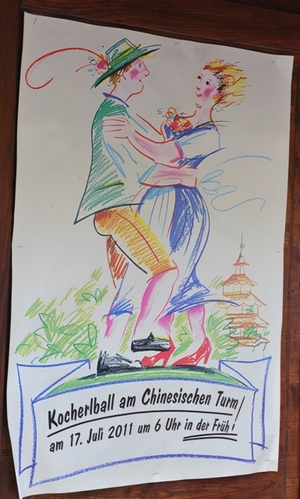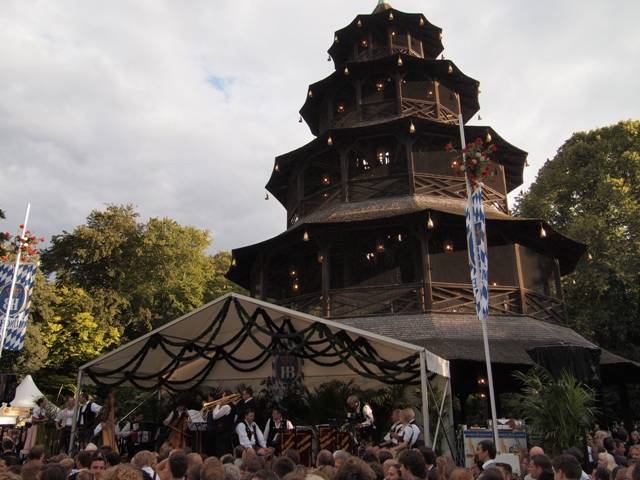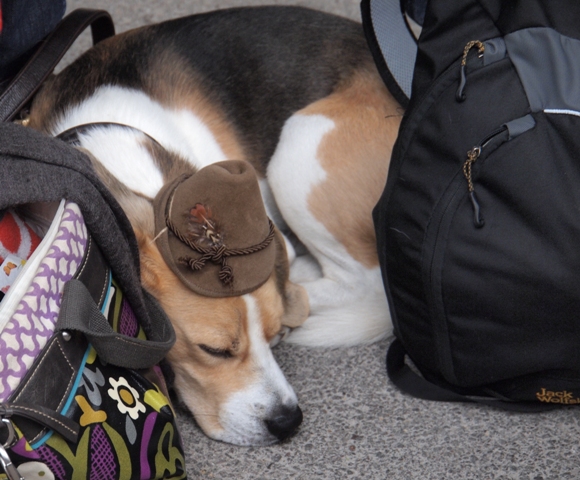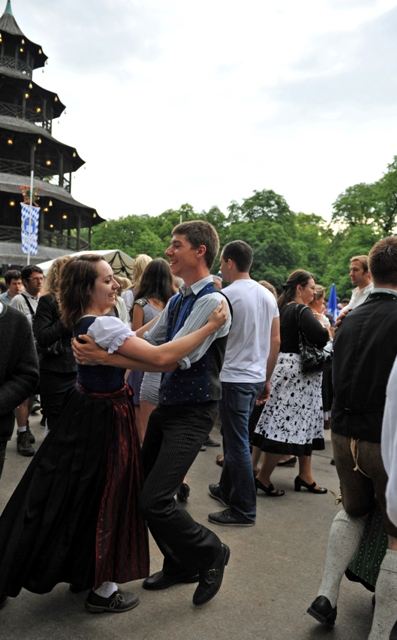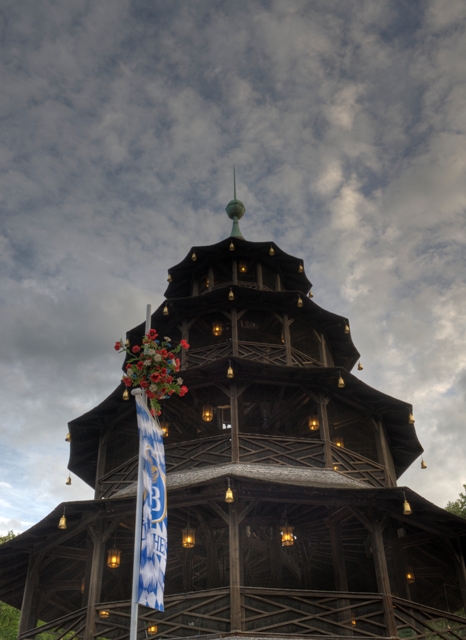Festivals: Auer Dult
 Wednesday, September 14, 2011 at 9:00
Wednesday, September 14, 2011 at 9:00 One of my favorite aspects of living in Germany is the numerous festivals. We're trying to visit as many as we can, but just the ones in the Munich area keep us quite busy. We haven't begun to explore those in the Stuttgart and Rhine Valley area!
Munich has beer festivals, dancing festivals, streetlife festivals, and many others. One of the oldest festivals, Auer Dult (there are 3 per year) are more about handicrafts, though they also come with the standard carnival rides and food stalls and games. This fair dates back to the early 1300s!
The name Dult refers to old traditional church festivals that were held as part of religious observances and the Auer refers to the location, at Mariahilfsplatz in the Au district. As with the old Dults, this one is set up around a church, the Mariahilfskirche.
Around the church they've set up a small midway, flea market, and of course food stalls. While there are a couple of places to buy beer, this isn't a beer festival. It's mostly about the 300 or so vendors selling their wares.
In the early days, when trade was difficult, slow, and dangerous, this was a market showcasing imports such as pots, porcelain, spices, silverware, and even snake oil type "remedies". Today it's known still as one of the biggest crockery markets in Europe.
And while you're browsing the stalls, there are fun rides, shooting galleries, and food and drink to entertain the whole family.





While there are plenty of fun games and rides and tasty treats, what sets the Auer Dult apart are the stalls selling crafts, kitchen wares, antiques, and random trash and treasure (depending on your perspective). I especially liked this vendor, with the boar's head!


Next year I need to stop in the ribbon stand and stock up on dirndl trimmings!


It's usually sunny and hot during the summer Jacobi Dult, so Herr J cools off with a slushie.


We'll have to do a post one day of all the funny decorative statues at the various fairs. I liked this guy at the french fry stand:

And no festival (or beer garden) is complete without Steckerlfisch!

As the Auer Dult is held in Spring, Summer, and Fall, we'll soon have another chance to visit in mid October. The "Kirchweihdult" is held from 15-23 October. Next year's spring "Maidult" will be from 28 April to 6 May and the summer "Jacobidult" will run from 27 July to 3 August. You can find the schedule online at the Auerdult site.
The Auer Dult in Munich is not the only Dult in Germany. Many towns large and small across southern Germany have them at least once or twice per year. Hop on over to the Regensblog to see Cliff and Sarah's visits to the semi-annual Dult in Regensberg. Or check out Servus München for some great pictures from the other Munich Dults.
 Frau A ...
Frau A ...  2 Comments
2 Comments 



























